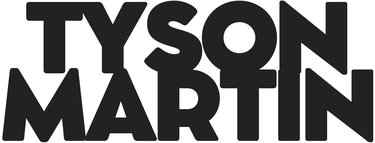Certified to Lead and Build Cybersecurity Strategies
Tyson Martin is grounded in discipline, builds and leads cybersecurity programs that are built for real-world impact, and has experience implementing frameworks: ISO 27001, ISO 420001, NIST Cybersecurity Framework, NIST 800-53, GDPR compliance, PCI DSS, and Secure Software Development Lifecycle (SDLC).
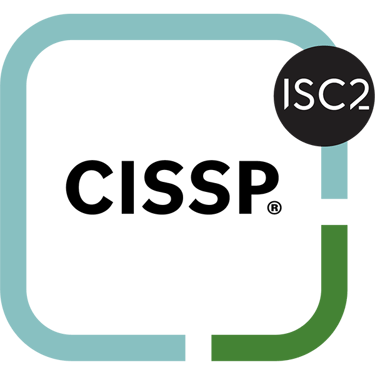

The CISSP is one of the most respected certifications in cybersecurity, and for good reason. It’s a rigorous credential that validates both deep technical expertise and strategic leadership across the entire security landscape — from governance and risk to architecture, cloud, and incident response. For me, earning the CISSP wasn’t just about passing an exam. It was about demonstrating that I know how to build and lead security programs that protect what matters most, align with business priorities, and stand up to regulatory scrutiny. When boards, executives, and teams see this certification, they know they’re working with someone who understands the full picture — not just the tools, but the mission.
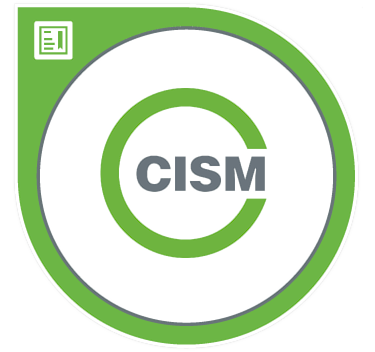

The CISM certification is about more than just understanding security controls, it’s about leading security as a business enabler. It focuses on risk, governance, and aligning security with strategic objectives, which is exactly how I approach the role. Holding the CISM signals that I don’t just build secure systems but I design and manage programs that protect enterprise value, ensure compliance, and earn stakeholder trust. This certification reinforces my ability to bridge the gap between technical teams and executive leadership, and to lead security initiatives that support growth, not just defense.
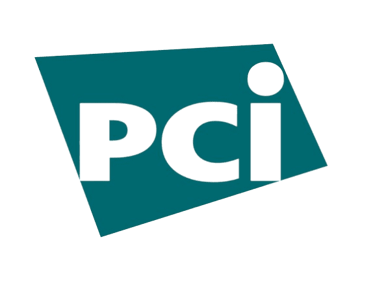

The PCI-P certification demonstrates a strong grasp of the Payment Card Industry Data Security Standard (PCI DSS) and the broader ecosystem of payment security. For me, it reflects not just technical knowledge of protecting cardholder data, but also a commitment to making compliance practical and sustainable for businesses. I’ve used this expertise to design and lead PCI programs that reduce audit fatigue, align with enterprise risk goals, and support seamless customer experiences — without compromising on trust or security.
As a certified PCI Internal Security Assessor (ISA), I’m equipped to perform internal PCI DSS assessments with the same rigor and methodology as external auditors — but with deeper alignment to the business. This credential allows me to streamline internal readiness, reduce third-party dependency, and ensure that compliance efforts are continuous, not one-time events. Holding the ISA means I can lead from inside the organization, driving PCI initiatives that are not just audit-ready, but business-smart.
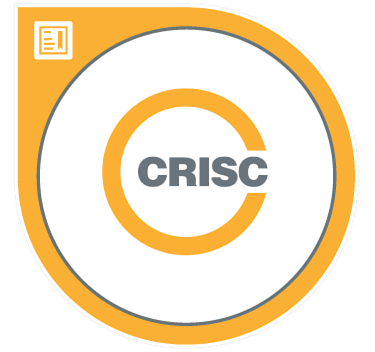

The CRISC certification is all about mastering the intersection of business risk and technology. It validates my ability to identify and manage enterprise IT risks in ways that protect value, support decision-making, and enable innovation. For me, holding the CRISC signals that I don’t just react to risk. I anticipate it, measure it, and embed controls that support resilience without slowing the business down. It reflects how I lead: with a clear understanding of how risk, strategy, and operations need to align to move an organization forward securely.
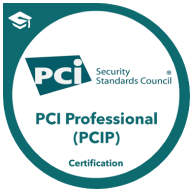

The CRISC certification is all about mastering the intersection of business risk and technology. It validates my ability to identify and manage enterprise IT risks in ways that protect value, support decision-making, and enable innovation. For me, holding the CRISC signals that I don’t just react to risk. I anticipate it, measure it, and embed controls that support resilience without slowing the business down. It reflects how I lead: with a clear understanding of how risk, strategy, and operations need to align to move an organization forward securely.
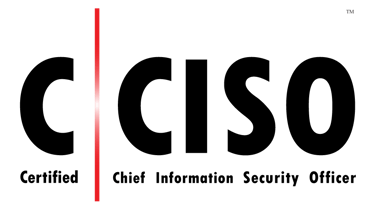

The C|CISO certification represents more than technical proficiency — it’s about executive-level leadership in information security. It validates that I operate at the strategic level, balancing risk, governance, and security investments to support business growth and resilience. Earning the C|CISO confirms what my career reflects: I lead security as a business function, translate complex risks for boards and executives, and build programs that protect both reputation and revenue. This certification reinforces my ability to step into a C-suite role with confidence and clarity — driving security decisions that are aligned, measured, and outcome-focused.
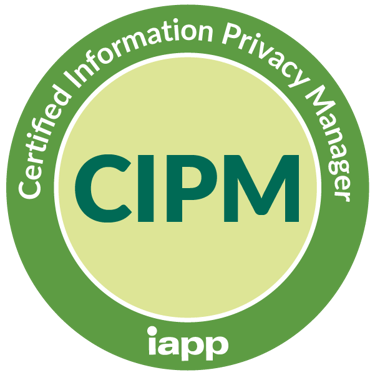

The CIPM certification focuses on building and managing privacy programs that are scalable, trusted, and aligned with global regulations. For me, it’s about more than compliance, it’s about designing data governance frameworks that respect user rights, reduce organizational risk, and build long-term trust with customers and partners. Holding the CIPM shows that I understand privacy as both a legal obligation and a strategic differentiator. I’ve used that mindset to integrate privacy into security programs, product development, and business operations, making it a seamless part of how modern organizations operate.
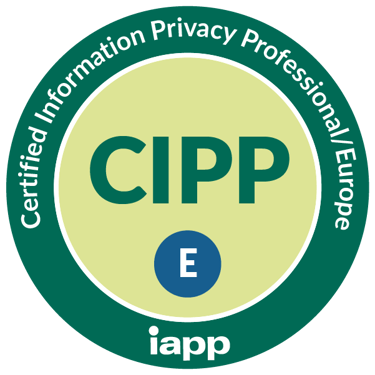

The CIPP/E certification reflects a deep understanding of European data protection laws (including the GDPR) and how to operationalize them across global businesses. For me, holding the CIPP/E isn’t just about legal knowledge; it’s about applying privacy principles in a way that supports innovation, builds trust, and keeps organizations ahead of regulatory expectations. I’ve used this expertise to help teams navigate cross-border data flows, minimize compliance risks, and design privacy into systems and processes from the start. It’s a key part of how I ensure privacy is not a blocker, but a business enabler.
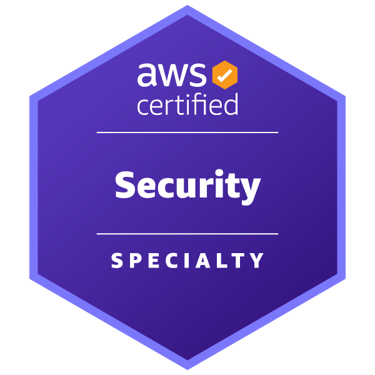

The AWS Certified Security – Specialty certification validates advanced expertise in securing cloud environments at scale, and for me, it reflects years of hands-on leadership helping organizations design and operate secure, resilient architectures in the cloud. Holding this certification demonstrates that I understand the nuances of cloud-native security (from identity and access management to encryption, monitoring, and incident response) all within the context of AWS. I’ve used this knowledge to guide executive decisions, harden cloud strategies, and accelerate digital transformation without compromising trust or compliance.
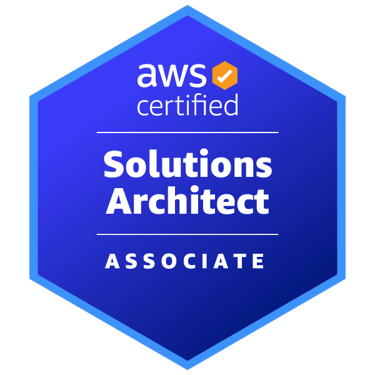

The AWS Certified Solutions Architect – Associate certification demonstrates a strong foundation in designing reliable, secure, and cost-optimized cloud architectures on AWS. For me, this certification reflects more than technical capability — it’s about understanding how to architect solutions that balance performance, resilience, and business value. I’ve used this expertise to lead cloud initiatives that scale with the organization, reduce operational risk, and align infrastructure decisions with strategic goals. It’s one of the ways I bridge deep technical understanding with the broader needs of the business.
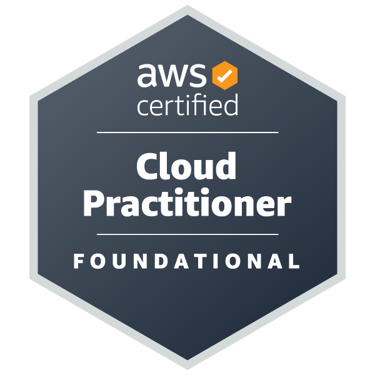

The AWS Certified Cloud Practitioner certification establishes a broad understanding of core AWS services, cloud economics, and best practices for building in the cloud. For me, it represents a strong foundation in how cloud technology drives business outcomes — from cost optimization and scalability to agility and innovation. While this certification is foundational, it’s a critical piece of how I lead conversations at the executive level about cloud strategy, governance, and risk. It ensures I can connect technical possibilities with business priorities — and guide organizations toward cloud decisions that are both secure and strategic.
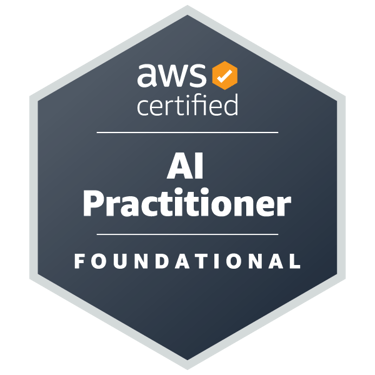

The AWS AI & ML – Foundational certification reflects a solid understanding of how artificial intelligence and machine learning can be responsibly applied in real-world business scenarios. For me, it’s about more than just knowing the terminology — it’s about understanding the opportunities, risks, and governance challenges that come with AI adoption. This certification supports how I help organizations evaluate AI use cases, integrate intelligent capabilities into secure architectures, and manage emerging risks like model bias and data privacy. It’s one of the ways I stay grounded in both the promise and the responsibility of bringing AI into modern business.
